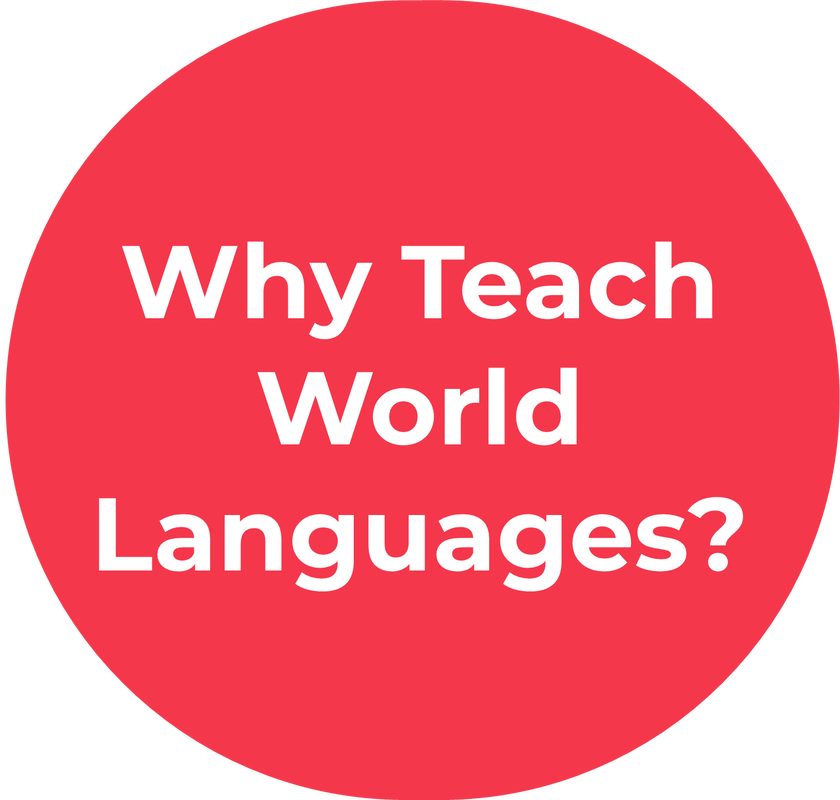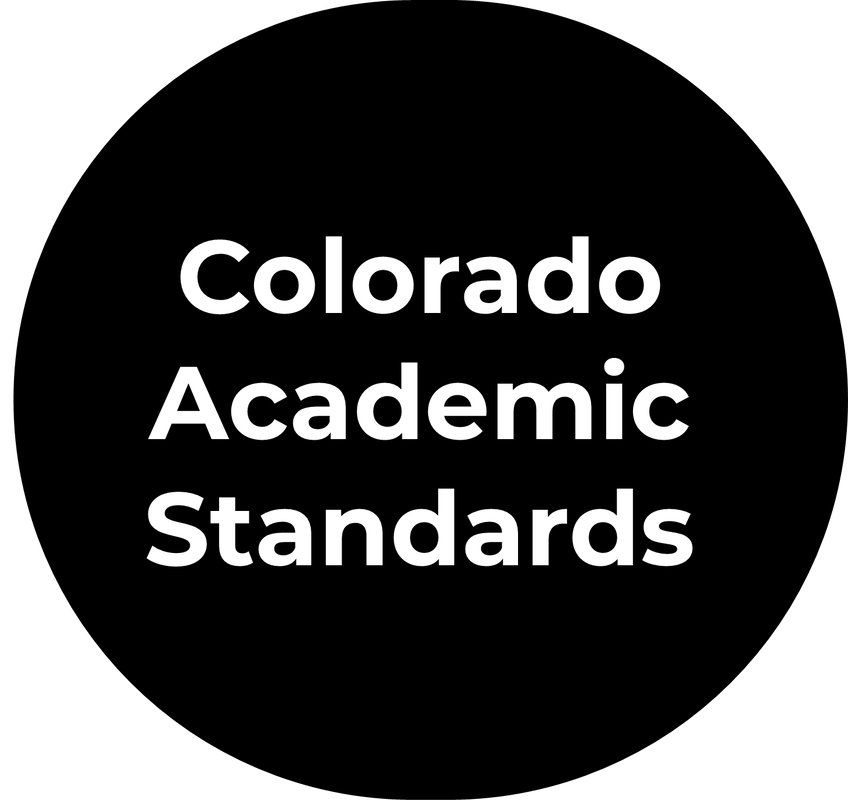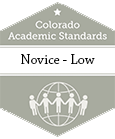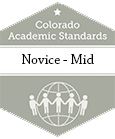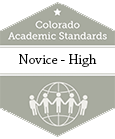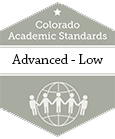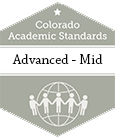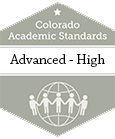Welcome to World Languages
Click the buttons below for quick access to content
Click the buttons below for quick access to content
The ability to communicate with respect and cultural understanding in more than one language is an essential element of global competence. This competence is developed and demonstrated by investigating the world, recognizing and weighing perspectives, acquiring and applying disciplinary and interdisciplinary knowledge, communicating ideas, and taking action. Global competence is fundamental to the experience of learning languages whether in classrooms, through virtual connections, or via everyday experiences. Language learning contributes an important means to communicate and interact in order to participate in multilingual communities at home and around the world. This interaction develops the disposition to explore the perspectives behind the products and practices of a culture and to value such intercultural experiences. (ACTFL, 2014)
The Colorado Academic Standards for World Languages create a roadmap to guide learners to develop competence to communicate effectively and interact with cultural competence to participate in multilingual communities at home and around the world.
The Colorado Academic Standards for World Languages also provide the framework for a curriculum with the richness and depth to provide a broad range of communicative experiences and content knowledge. These standards put the focus on the broader view of second language acquisition and competence: What should learners know and be able to do—and how well? The standards provide a purpose for learning another language, establishing a broader, more complete rationale for language education to guide parents, educators, administrators, and community members to develop and support language learners through the design of effective programs and options to learn, practice, and apply this competence.
The standards’ approach to world language instruction is designed to facilitate genuine interaction with others, whether they are on another continent, across town, or within the neighborhood, and whether they are face-to-face, connected electronically, or availing themselves of another’s written or broadcast messages. To acquire another language and to study culture enhances one’s personal education in many ways. With these understandings comes a newfound respect for others’ languages and cultures, as well as one’s own.
Research indicates that the very process of acquiring another language may give learners a cognitive boost that enables them to perform at higher levels in some other subjects. Additional studies show that over time second language learners (1) have improved test scores; (2) are able to think divergently; and (3) achieve in their first language.
To acquire another language and to study culture provides access to a wide variety of authentic literary and informational texts, as well as film and video as they are experienced by the audience for whom they were created. When learners access and use these culturally authentic sources, they are building their literacy skills at the same time.
Since the content of a language course often deals with history, geography, social studies, science, mathematics, literature, and the visual and performing arts, it is easy for learners to develop an interdisciplinary perspective at the same time they are gaining intercultural understandings.
To acquire another language and to study culture is to gain an especially rich preparation for the future. It is difficult to imagine a job, a profession, a career, or a leisure activity which will not be enhanced greatly by the ability to communicate efficiently and sensitively with others. Possessing the linguistic and cultural insights that come with the study of one or more world languages will be a requisite for life as an informed, productive, and globally literate citizen in the worldwide community.
The Colorado Academic Standards for World Languages create a roadmap to guide learners to develop competence to communicate effectively and interact with cultural competence to participate in multilingual communities at home and around the world.
The Colorado Academic Standards for World Languages also provide the framework for a curriculum with the richness and depth to provide a broad range of communicative experiences and content knowledge. These standards put the focus on the broader view of second language acquisition and competence: What should learners know and be able to do—and how well? The standards provide a purpose for learning another language, establishing a broader, more complete rationale for language education to guide parents, educators, administrators, and community members to develop and support language learners through the design of effective programs and options to learn, practice, and apply this competence.
The standards’ approach to world language instruction is designed to facilitate genuine interaction with others, whether they are on another continent, across town, or within the neighborhood, and whether they are face-to-face, connected electronically, or availing themselves of another’s written or broadcast messages. To acquire another language and to study culture enhances one’s personal education in many ways. With these understandings comes a newfound respect for others’ languages and cultures, as well as one’s own.
Research indicates that the very process of acquiring another language may give learners a cognitive boost that enables them to perform at higher levels in some other subjects. Additional studies show that over time second language learners (1) have improved test scores; (2) are able to think divergently; and (3) achieve in their first language.
To acquire another language and to study culture provides access to a wide variety of authentic literary and informational texts, as well as film and video as they are experienced by the audience for whom they were created. When learners access and use these culturally authentic sources, they are building their literacy skills at the same time.
Since the content of a language course often deals with history, geography, social studies, science, mathematics, literature, and the visual and performing arts, it is easy for learners to develop an interdisciplinary perspective at the same time they are gaining intercultural understandings.
To acquire another language and to study culture is to gain an especially rich preparation for the future. It is difficult to imagine a job, a profession, a career, or a leisure activity which will not be enhanced greatly by the ability to communicate efficiently and sensitively with others. Possessing the linguistic and cultural insights that come with the study of one or more world languages will be a requisite for life as an informed, productive, and globally literate citizen in the worldwide community.
(Click on a grade level to open standards in a new window)
